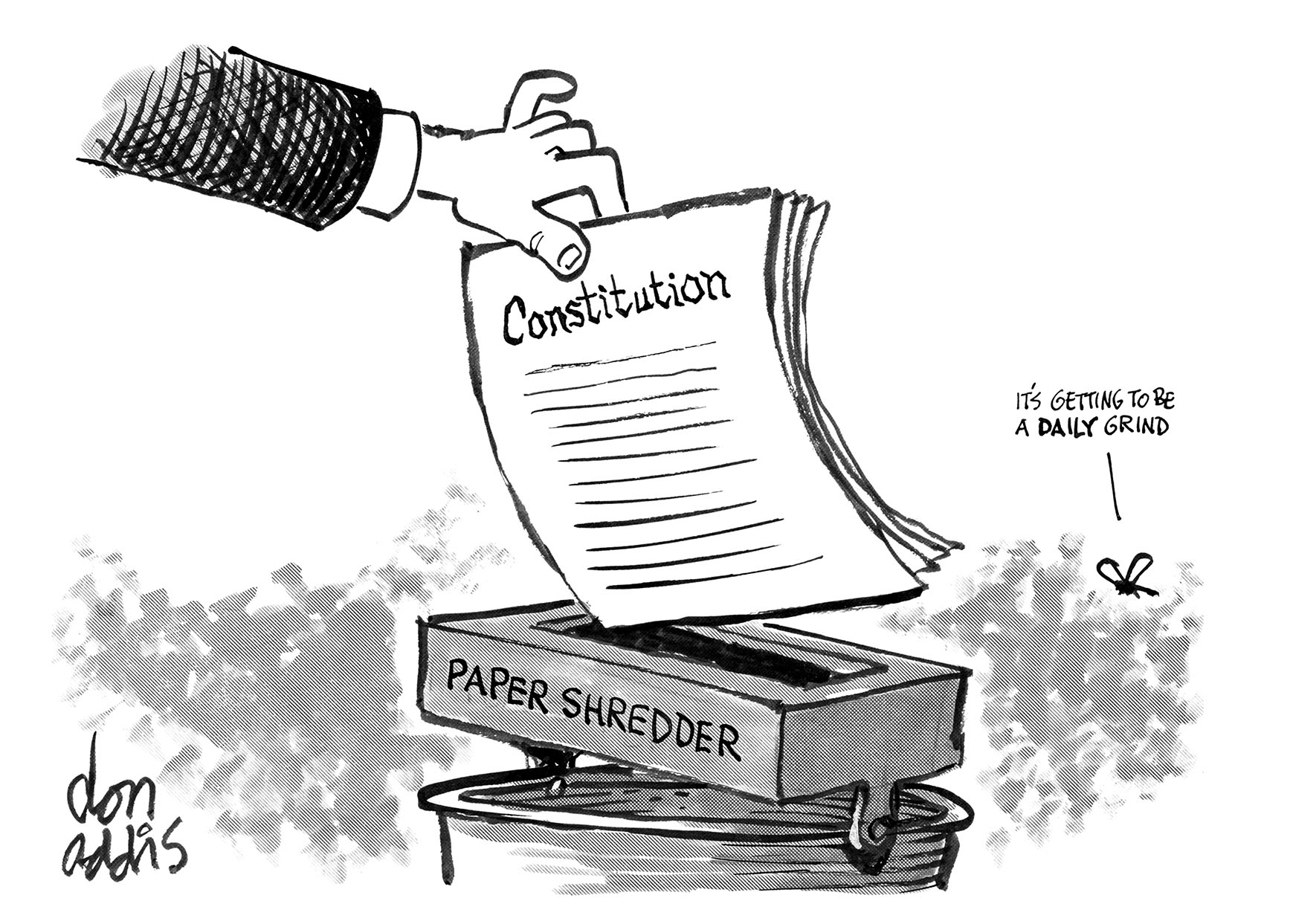
While Donald Trump’s remarks last weekend calling for “termination” of constitutional provisions are rightly creating consternation, the Freedom From Religion Foundation must point out that many constitutional provisions are already being “terminated” . . . by the ultraextremist Supreme Court fashioned by Trump.
Trump, in claiming that he won the 2020 presidential election, wrote on Truth Social last weekend: “A Massive Fraud of this type and magnitude allows for the termination of all rules, regulations, and articles, even those found in the Constitution.”
Even many conservative politicians —mostly after media called attention to their silence — criticized the remarks, such as Senate Minority Leader Mitch McConnell and former Vice President Mike Pence.
More outspoken was Sen. Lisa Murkowski of Alaska, who tweeted Monday: “Suggesting the termination of the Constitution is not only a betrayal of our Oath of Office, it’s an affront to our Republic.”
FFRF, which works to uphold constitutional dictates, agrees it is an affront. Unfortunately, the Supreme Court shaped by Trump, who appointed one-third of it, is meanwhile assiduously and successfully “terminating” many constitutional provisions.
Although voting rights and strict state/church separation were already being chipped away at for years by the increasingly extremist high court, the Trump Court has actually begun dismembering major parts of the Constitution and Bill of Rights.
The court did the once-unthinkable and “terminated” Roe v. Wade in June. Out went decades of privacy precedent found in the Bill of Rights. This was far more than an “affront,” creating legislative hand-to-hand combat in most states, with abortion care already criminalized in more than a dozen states and endangered in many others. Next on the chopping block are privacy rights such as contraception, marriage equality and possibly even the Loving decision, invalidating anti-miscegenation laws.
Last summer, the high court also summarily “terminated” the Lemon test. This wise analysis held a governmental action constitutional if it had a secular purpose, its primary effect did not advance or inhibit religion, and it did not foster excessive governmental entanglement with religion. Nixing the Lemon Test was certainly an affront, as this 1971 “test” did not come out of the blue, but was a careful synthesis of decades of high court rulings on the Establishment Clause. Now the current court has adopted a lame “history and tradition” test that promises to cherry-pick “facts” in such a way that religious freedom becomes a license for government promotion of religion and discrimination done in the name of religion.
We can see the writing on the wall in how the majority will rule in the 303 Creative case, the subject of oral arguments this week. It certainly appears the court majority will side with a conservative Christian who absurdly claims her free speech is imperiled because Colorado has an anti-discrimination law. She claims this regulation would compel her to design wedding websites for gay couples — if only she owned such a business! She hasn’t ever designed a wedding website, or refused a gay couple, or been subject to the state’s anti-discrimination regulations. Ordinarily, such a challenger would be thrown out of court on the issue of standing — which requires litigants to jump through hoops showing they have actual injury or harm.
This is not the only case the Supreme Court has accepted in which the Christian plaintiff doesn’t even have legal standing. We saw the same double-standard in the Kennedy v. Bremerton case, even though the litigant no longer had a live case or controversy.
In the Trump Court, the rules that apply to the rest of us don’t necessarily apply to Christian conservative litigants. This was also shown in analysis of the court’s “shadow docket” cases, which have generally favored religion and Trump challengers.
Many of the rights established in the Constitution and Bill of Rights are in fact being “terminated” in front of our eyes. That’s why FFRF is working for court reform and expansion, before it is too late.

